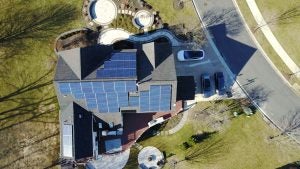In most cases, the loan is entirely transferable to the new homeowner. Even most people would prefer to buy a home that has a set low solar payment with an end date vs. a high electric bill that inflates without an end date.
Start saving your move now. In most cases, solar cost less than electric. So get solar and start saving straight away is smarter!
The answer hinges on the ownership structure of your system. The appraisal industry is preparing its employees to meet the solar growth nationally. The Appraisal Institute now teaches real estate appraisers on how to better determine the value added to a home through solar and other energy-efficiency initiatives. Look for a real estate specialist who is properly trained to assess the impact of solar when the time comes for your home to be measured. It can connect with your home if you own the device, and help boost its resale value. A Lawrence Berkeley National Laboratory study in 2015 showed that, on average, a traditionally configured residential solar panel contributes $15,000 to a home’s resale value. The report included an overview of over 22,000 home sales across eight states–of which almost 4,000 included PV systems. Statistics on home sales spanned from 2002 to 2013. Zillow’s 2019 study found solar increased home values by approximately 4%.

If you are leasing the system, depending on your lease agreement, you may have a few options. Your mortgage may be transferable as part of the home sale. Or you might have to pay off the mortgage before you sell your home. Then, you can include the cost of this pay-off in the sale price of your home.
